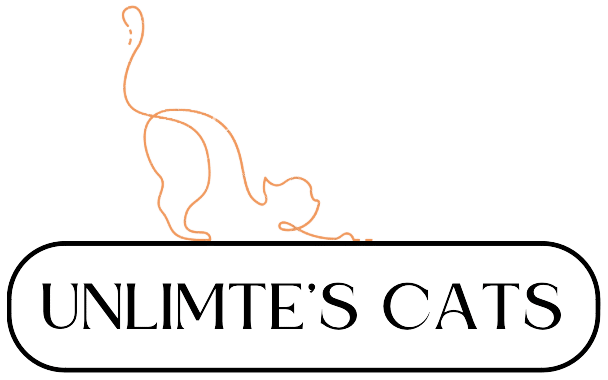Helping your cat achieve a healthy weight is essential for their well-being and longevity. Thinness can lead to various health issues, and simply increasing food intake might not be the solution. In this article, we’ll delve into effective methods to feed a cat for weight gain and explore suitable food options.
Causes of Weight Loss in Cats:
Weight loss in cats can stem from physiological factors or underlying health conditions. Common reasons include:
Fasting or inadequate nutrition
Stress
Metabolic disorders
Dehydration due to gastrointestinal issues
Infection with worms (helminths)
Post-surgery recovery or prolonged medication use
Specialized High-Calorie Feeds:
For healthy weight gain, specially formulated high-calorie feeds are recommended. Opt for premium-quality or holistic brands for optimal results. Dry food is a popular choice due to its convenience and complete nutrient profile. Some top dry cat foods for weight gain include:
Royal Canin Gastro Intestinal Moderate Calorie
Hill’s Science Plan Perfect Weight
Acana Orijen SIX FISH
Recommended Dry Cat Foods:
Royal Canin Gastro Intestinal Moderate Calorie: Designed for cats with digestive disorders, this food contains essential nutrients, prebiotics, and high-quality proteins for optimal absorption and overall health.
Hill’s Science Plan Perfect Weight: Tailored to cats prone to weight gain, this food promotes healthy weight management with prebiotics for improved digestion and reduced fat content.
Acana Orijen SIX FISH: Comprising 85% fish protein, this food supports weight gain with essential nutrients. It’s free from artificial flavors and appeals to cats’ taste preferences.
Effective Wet Food Choices:
Wet food options can expedite weight gain due to their higher moisture content and palatability. Consider the following wet cat foods:
Restoration of the Royal Dogs
Royal Canin Recovery Support Cat
Chicken and Duck Applaws
Recommended Wet Cat Foods:
Royal Canin Recovery: Intended for recovery from illness or intensive care, this wet food provides essential proteins, fats, and carbohydrates. It’s suitable for feeding through a probe if necessary.
Royal Canin Convalescence Support Cat: Designed for cats in recovery or those with weight issues, this dietary wet food enhances immunity, supports weight gain, and improves overall health.
Applaws Chicken & Duck: Made from meat and cooked in broth, this canned food closely resembles a natural diet. Its simplicity and quality ingredients make it appealing to cats and effective for weight gain.
Feeding Strategies:
Training: Patiently train your cat to use the litter box, providing a clean and accessible environment.
Correction: Address inappropriate behavior with a firm “no” and guide your cat to the litter box.
Time and Attention: Spend quality time playing and engaging with your cat, especially during significant changes like introducing new pets or babies.
Environment Management: Maintain an organized environment, promptly store clean clothes, and clean up accidents to discourage repeat incidents.
Remember, gradual and healthy weight gain is the goal. Avoid feeding fatty or inappropriate human foods that could harm your cat. By understanding your cat’s needs and implementing these strategies, you can help your feline friend achieve and maintain a healthy weight.
Achieving Healthy Weight Gain in Cats: Strategies and Recommended Foods
Helping your cat achieve a healthy weight is essential for their well-being and longevity. Thinness can lead to various health issues, and simply increasing food intake might not be the solution. In this article, we’ll delve into effective methods to feed a cat for weight gain and explore suitable food options.
Causes of Weight Loss in Cats:
Weight loss in cats can stem from physiological factors or underlying health conditions. Common reasons include:
Fasting or inadequate nutrition
Stress
Metabolic disorders
Dehydration due to gastrointestinal issues
Infection with worms (helminths)
Post-surgery recovery or prolonged medication use
Specialized High-Calorie Feeds:
For healthy weight gain, specially formulated high-calorie feeds are recommended. Opt for premium-quality or holistic brands for optimal results. Dry food is a popular choice due to its convenience and complete nutrient profile. Some top dry cat foods for weight gain include:
Royal Canin Gastro Intestinal Moderate Calorie
Hill’s Science Plan Perfect Weight
Acana Orijen SIX FISH
Recommended Dry Cat Foods:
Royal Canin Gastro Intestinal Moderate Calorie: Designed for cats with digestive disorders, this food contains essential nutrients, prebiotics, and high-quality proteins for optimal absorption and overall health.
Hill’s Science Plan Perfect Weight: Tailored to cats prone to weight gain, this food promotes healthy weight management with prebiotics for improved digestion and reduced fat content.
Acana Orijen SIX FISH: Comprising 85% fish protein, this food supports weight gain with essential nutrients. It’s free from artificial flavors and appeals to cats’ taste preferences.
Effective Wet Food Choices:
Wet food options can expedite weight gain due to their higher moisture content and palatability. Consider the following wet cat foods:
Restoration of the Royal Dogs
Royal Canin Recovery Support Cat
Chicken and Duck Applaws
Recommended Wet Cat Foods:
Royal Canin Recovery: Intended for recovery from illness or intensive care, this wet food provides essential proteins, fats, and carbohydrates. It’s suitable for feeding through a probe if necessary.
Royal Canin Convalescence Support Cat: Designed for cats in recovery or those with weight issues, this dietary wet food enhances immunity, supports weight gain, and improves overall health.
Applaws Chicken & Duck: Made from meat and cooked in broth, this canned food closely resembles a natural diet. Its simplicity and quality ingredients make it appealing to cats and effective for weight gain.
Feeding Strategies:
Training: Patiently train your cat to use the litter box, providing a clean and accessible environment.
Correction: Address inappropriate behavior with a firm “no” and guide your cat to the litter box.
Time and Attention: Spend quality time playing and engaging with your cat, especially during significant changes like introducing new pets or babies.
Environment Management: Maintain an organized environment, promptly store clean clothes, and clean up accidents to discourage repeat incidents.
Remember, gradual and healthy weight gain is the goal. Avoid feeding fatty or inappropriate human foods that could harm your cat. By understanding your cat’s needs and implementing these strategies, you can help your feline friend achieve and maintain a healthy weight.




